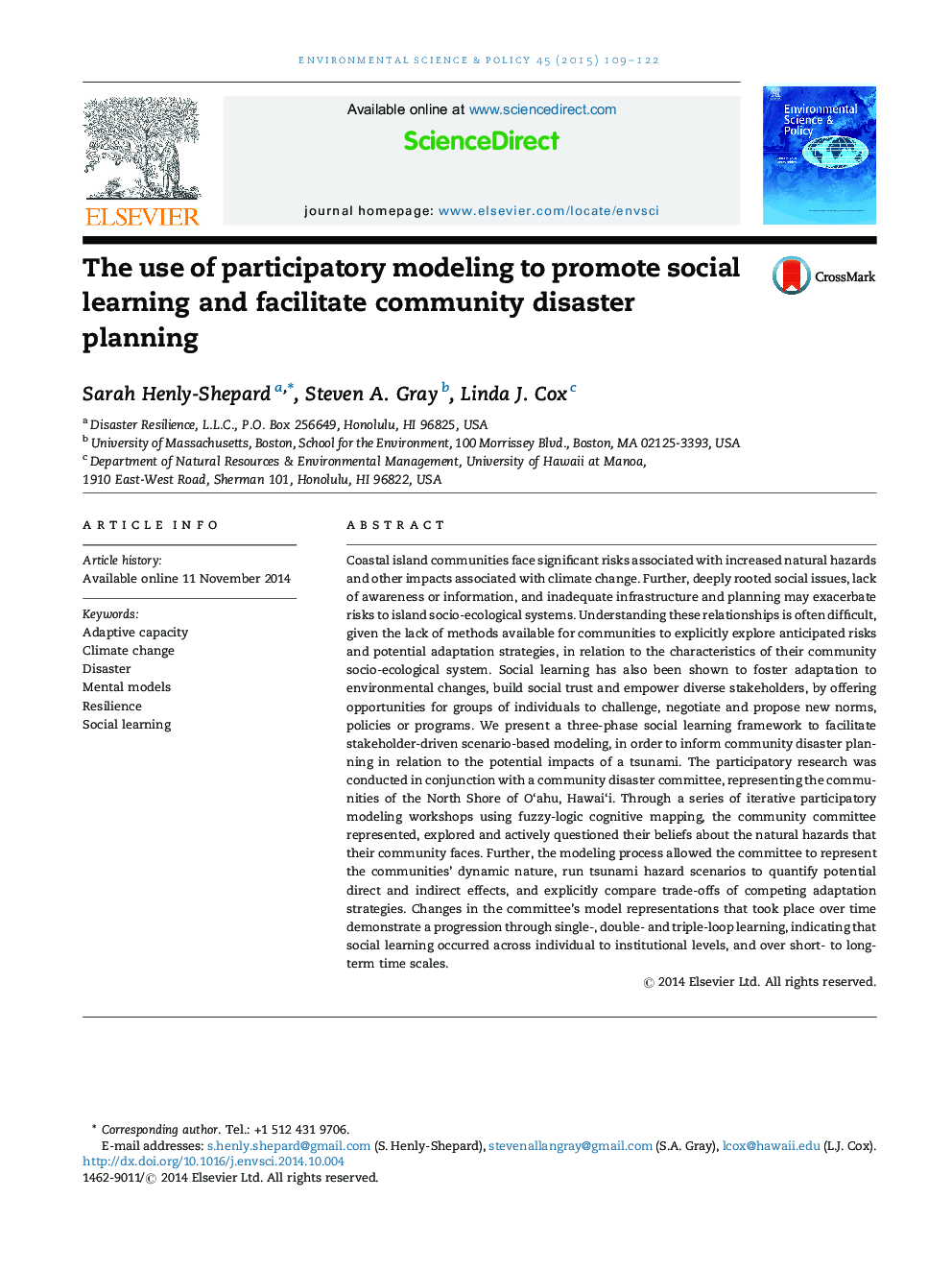| کد مقاله | کد نشریه | سال انتشار | مقاله انگلیسی | نسخه تمام متن |
|---|---|---|---|---|
| 1053537 | 1485061 | 2015 | 14 صفحه PDF | دانلود رایگان |
• Coastal and island communities face increasing risk to hazards and climate change.
• Tools are needed to help communities mitigate hazards and reduce risks.
• Social learning can increase community resilience and adaptive capacity over time.
• Fuzzy-logic cognitive mapping can support social learning and consensus-building.
• We present a process to facilitate community disaster planning and social learning.
Coastal island communities face significant risks associated with increased natural hazards and other impacts associated with climate change. Further, deeply rooted social issues, lack of awareness or information, and inadequate infrastructure and planning may exacerbate risks to island socio-ecological systems. Understanding these relationships is often difficult, given the lack of methods available for communities to explicitly explore anticipated risks and potential adaptation strategies, in relation to the characteristics of their community socio-ecological system. Social learning has also been shown to foster adaptation to environmental changes, build social trust and empower diverse stakeholders, by offering opportunities for groups of individuals to challenge, negotiate and propose new norms, policies or programs. We present a three-phase social learning framework to facilitate stakeholder-driven scenario-based modeling, in order to inform community disaster planning in relation to the potential impacts of a tsunami. The participatory research was conducted in conjunction with a community disaster committee, representing the communities of the North Shore of O‘ahu, Hawai‘i. Through a series of iterative participatory modeling workshops using fuzzy-logic cognitive mapping, the community committee represented, explored and actively questioned their beliefs about the natural hazards that their community faces. Further, the modeling process allowed the committee to represent the communities’ dynamic nature, run tsunami hazard scenarios to quantify potential direct and indirect effects, and explicitly compare trade-offs of competing adaptation strategies. Changes in the committee's model representations that took place over time demonstrate a progression through single-, double- and triple-loop learning, indicating that social learning occurred across individual to institutional levels, and over short- to long-term time scales.
Journal: Environmental Science & Policy - Volume 45, January 2015, Pages 109–122
